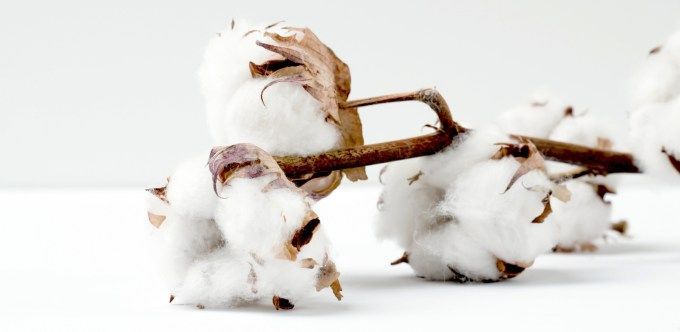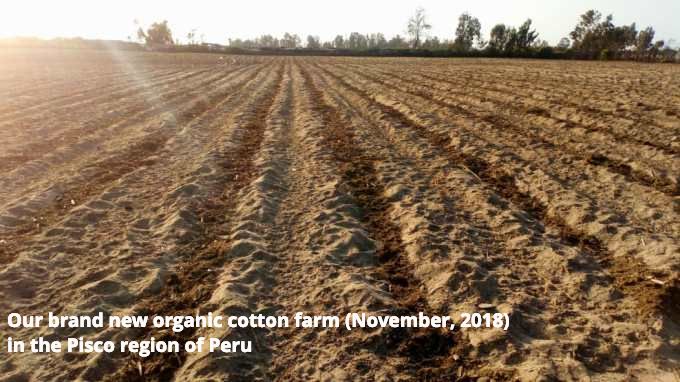
0.05%
The world grows a LOT of cotton. 57 billion pounds a year. The best cotton - Pima - is 2% of the total. Organic Pima cotton? Yep, 0.05%. We're talking 50 bushels out of every hundred thousand! And that's where we play. Most of Fair Indigo's fabrics are made with Organic Pima cotton.
Why Pima?
Pima is an ELS (extra long staple) cotton. It's significantly softer, stronger, and longer-lasting that other cottons. It beautifully resists pilling, shrinking, and disintegrating in your laundry. It really really does!
Why organic?
If you love organic food, but hadn't given much thought to cotton, consider this: cotton occupies only 3% of the world's farmland, but it consumes a whopping 25% of all pesticides. Setting aside the fact that we probably don't want pesticides lurking in our clothes, cotton pesticides in particular are even stronger than many food crop pesticides and can cause grave damage to farmland and adjacent eco-systems. Sterilizing soil (which encourages deforestation in search of new farmland), leaching into ground water, rivers, and lakes, and posing danger to farm hands.
So when someone comments on your Fair Indigo tee, you can tell them it's made with the top 0.0005% cotton in the world!
Which brings us to Peru
Cotton is to Peru as ice is to Antarctica. Cotton fabrics and garments have been found in Incan and even pre-Incan ruins. (OK, we're not saying your Pima cotton tee will last that long, but...). Today, Peru is widely regarded as the best place on earth to grow cotton. And one of the very few places perfect for growing Pima cotton.
All of our cotton is grown without the use of pesticides, much like the Incas did. Our farmers use time-honored techniques like crop rotation for soil health (they grow quinoa in the off season), natural irrigation, and "intercropping" (see Fun Fact below).
Fun Fact: Corn is a natural pesticide for organic cotton. Our farmers plant one stalk of corn at the end of each row of cotton - kind of like an end aisle display. The corn attracts precisely the right insects that prevent cotton pests. We are so impressed with the thoughtful planning and hard work that goes into trying to do the right thing!

Our farmers also use good old fashioned cow manure as fertilizer. Pima cotton requires that they weed and harvest completely by hand because machines partially destroy the extra long fibers.
Hard Work
Growing organic Pima cotton is precarious work. In addition to being a hands-on endeavor, there is a lot of dependence on a very specific weather pattern. A short, wet planting season followed by a sunny warm growing season, but with temperatures never getting too cold or too hot. Peru's Andean midlands are ideal. Well, they were. In recent years, Peru has swung from extremes of droughts and floods, hot spells and cold snaps. In 2018, our farms experienced a perfect storm of the wrong weather at the wrong time. The harvest was decimated. While we usually have excess cotton to sell on the open market, with last spring's harvest, we'll have just enough to squeak by for our 2018 production. Too close for comfort!
Plan B
Javier, our master farmer (and co-owner with his wife Elsa of our Lima workshop), never wants to experience a year like 2018 again. And neither do we. While he can't control the weather or climate change, Javier can hedge his bets. By buying small plots of land in various locations around the midlands, he's betting that bad weather is less likely to strike in multiple areas than on our single large farm that served us well until 2018.
So...introducing our latest plot of land. 30 hectares in the Pisco region. In November it was certified by CAAE as organic. The soil had to undergo intensive testing to make sure nothing unnatural was hiding. And we passed with flying colors. The cotton you see below will be used in our Fall/Winter 2018 production - and (knocking on wood) it looks like it will be a banner harvest this time!



Robert Behnke
Founder, Fair Indigo
